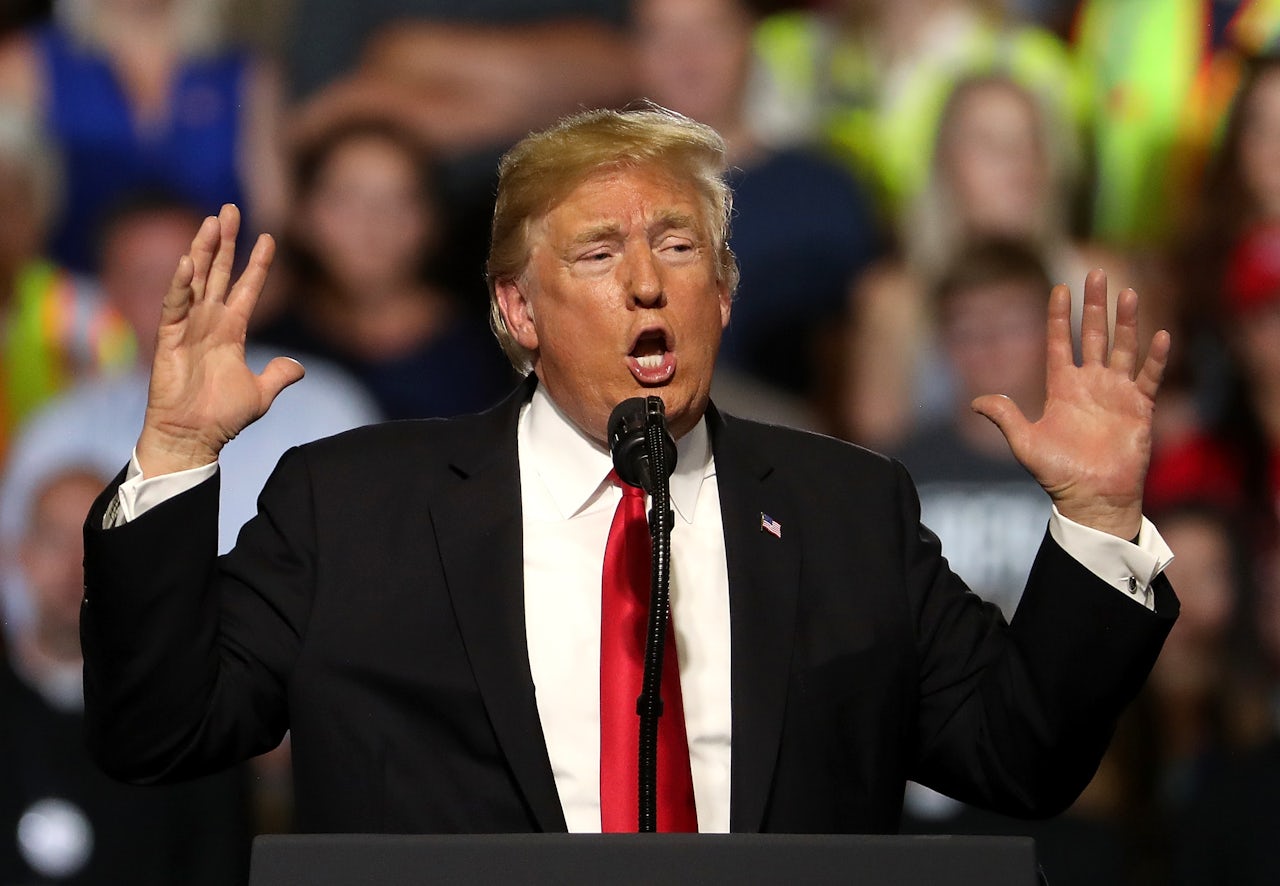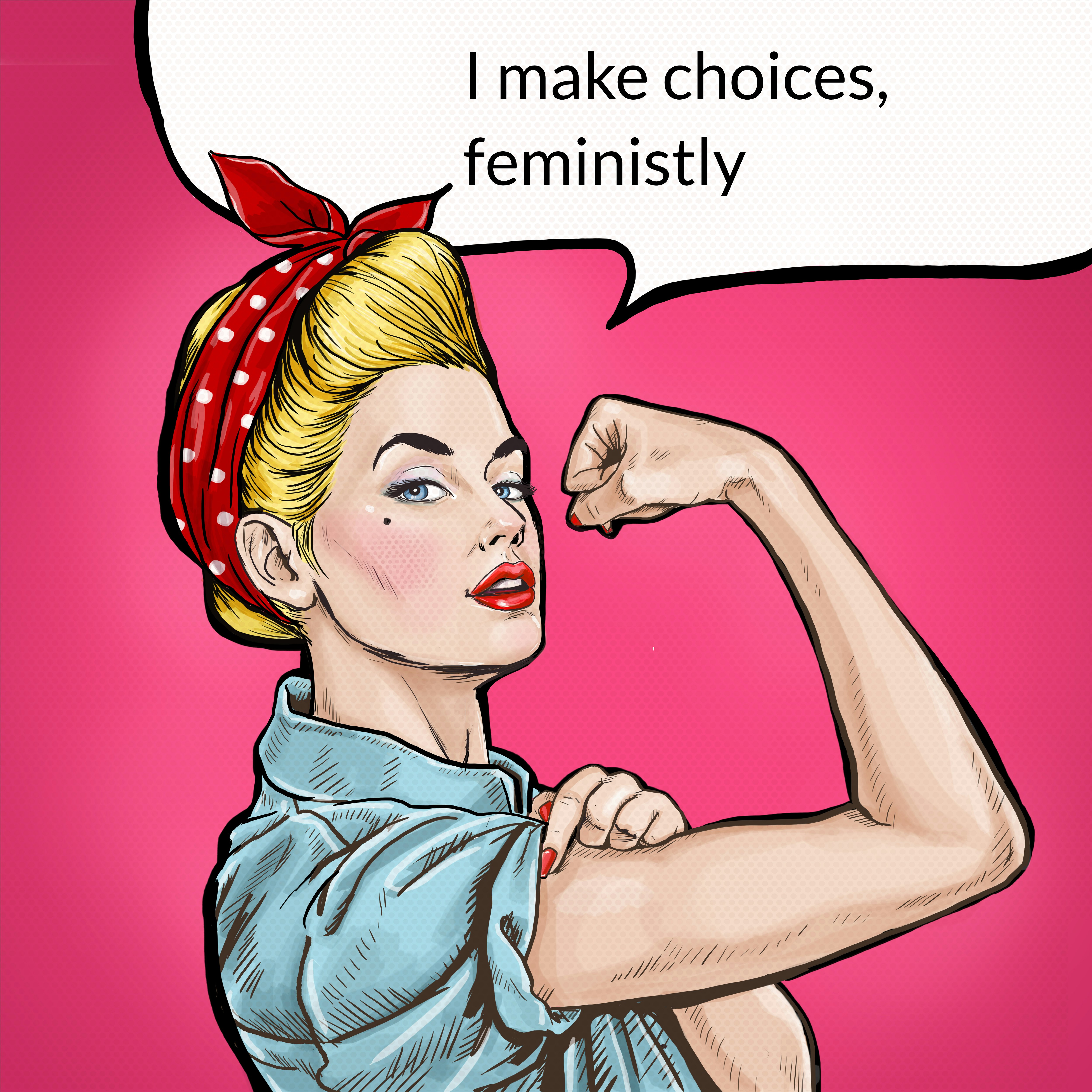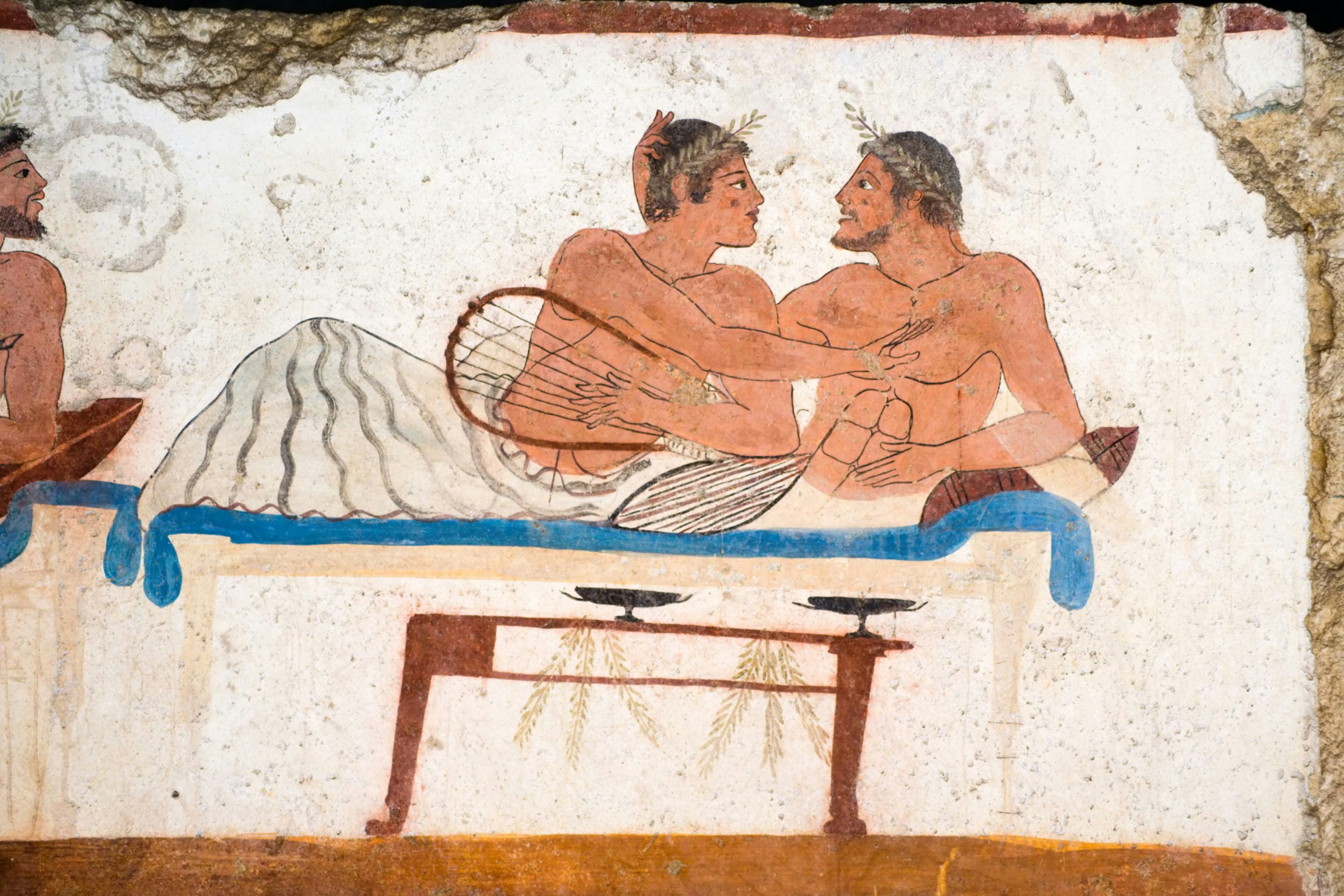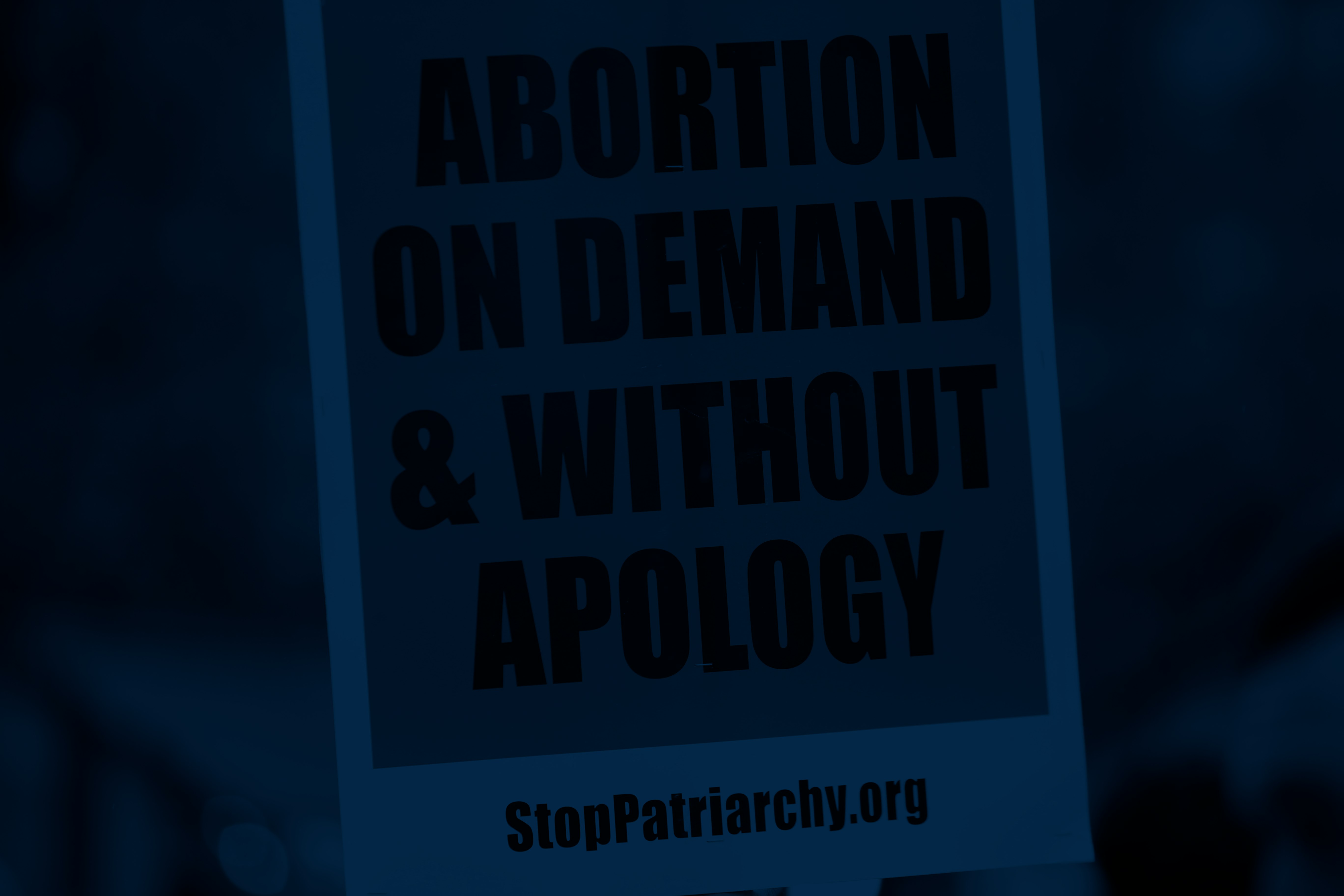Postmodernism has… not been in the best way lately. Deconstructionist luminaries have come under fire for defending a colleague accused of sexual harassment. And if their behavior wasn’t bad enough, postmodernism has also become a fashionable way of explaining the condition we all find ourselves in, where various forces have conspired to install an admitted sexual predator as leader of the free world.
Yes, if you’ve come across a theory-based Trump take, it will almost certainly be this: Trump, Donald Trump, the President Donald Trump, can be explained by: postmodernism. Baudrillard, Derrida, Lyotard, Fred Jameson — all that literary-theory nonsense that, if you’ve heard of it at all, you’ve likely been trying to repress since you graduated with whatever middling honors from your Humanities degree — this is what we can use to make sense, of the fact of Trump.
But is this, in any way, true? On the face of it, I’m not even sure what the assertion itself means. ‘postmodernism’ is a pretty difficult-to-define term as it is, and it’s certainly not all that well defined in the context of this particular debate. As far as I can tell, there are two broad understandings of postmodernism in play here.
The first is that postmodernism is a theory which denies the existence of objective truth. According to the postmodernist, there is no truth: only various different narratives or ‘interpretations.’ Postmodernism, then, is characterised by a sort of nihilistic relativism.
The second is that postmodernism is a theory about a world in which objective truth has, for whatever reason, become impossible.
In the context of Trump takes: The first understanding of postmodernism is very much present in Michiko Kakutani’s recent book The Death of Truth (available now in all bookstores where your uncle who won’t stop talking about Russia is likely to browse). The second is the one invoked by Jeet Heer in his seminal New Republic essay ‘The First Postmodern President’. I don’t have the space or the willpower to do a close reading of every single damn Trump/postmodernism take on the Internet, so let’s focus on these two examples.
Here is Kakutani’s theory. Trump and his supporters, as we know, like to lie. They like to lie and spread ‘fake news’ (this is basically what Kakutani’s book is about). But what makes Trump and his guys feel like they’re able to lie so much? Well, this is where postmodernism comes in.
According to (Kakutani’s version of) postmodernism, everything is a narrative, including stuff people normally insist is true, like science. The postmodernists, of course, were for the most part a bunch of bleeding-heart lefties who thought that by calling objective reality into question they could more effectively incorporate voices from marginalized perspectives. But what they didn’t realize (I guess?) is that this works both ways: once you’ve sacked off truth, anyone can move into the space you’ve opened up, including the far-right (historically the postmodernists themselves fell foul of this when they started defending their old mate Paul de Man, who turned out to have collaborated with the Nazis during World War II — what recent events might this remind us of?). The Trump administration is therefore free to posture and dissimulate with whatever ‘alternative facts’ they wish.
What to say about this? Well, certainly this might be considered an accurate assessment of the limits of a certain sort of relativistic nihilism. But firstly, it is unclear what if anything this has to do with postmodernism. Do postmodernists, in rejecting objective truth, really end up believing in ‘nossing,’ like those three Germans from The Big Lebowski? Only if you think that truth is exhausted by objectivity. Imagine all truth is a matter of interpretation, thus to a certain extent subjective — well, there can still always be better and worse interpretations. I might interpret Kakutani as claiming that Donald Trump became President primarily to pursue a vendetta against some plucky cartoon mice. But that would not be a good interpretation of her book, and she would rightly be able to contest it. ‘Postmodernism’ cannot (and would not!) tell her she was wrong to do that.
Secondly, even if Kakutani’s understanding of postmodernism was accurate, it would be hard to see what, if anything, this had to do with Donald Trump. As she herself acknowledges, it is “safe to say that Trump has never plowed through the works of Derrida, Baudrillard, or Lyotard (if he’s even heard of them).” And she makes little or no effort to establish any causal link between academic postmodernism and the Trumpist right. Even if every postmodernist openly and frequently declared that lying is good, they still can’t be held responsible for having sanctioned an intellectual context in which it’s pretty much okay to constantly lie. To be frank, we’re talking here about a tradition which briefly flourished in the ‘70s and ‘80s but which, despite its notoriety, has very little ongoing influence even in academic Humanities departments — just try building your research profile around this stuff and then trying to get a tenure-track job. Kakutani points to things like the fact that the voices of scientists are frequently ‘balanced’ on the news by those of creationists or climate-change deniers. But this has almost nothing to do with postmodernism and almost everything to do with the pathological, and deeply liberal idea of ‘balance,’ a disease which would have infected our news agenda regardless of whether or not Derrida had ever claimed that there was nothing outside of the text.
Even if Kakutani’s understanding of postmodernism was accurate, it would be hard to see what, if anything, this had to do with Donald Trump.
Given all this, Heer’s version of the take initially seems a lot more creditable. Heer doesn’t consider postmodernist theory to be responsible for Trump — rather, Trump is to be understood as the “culmination” of a postmodern, “late capitalist” world. Postmodernist theory can therefore help us to understand Trump.
The story is supposed to go pretty much like this: The triumph of economic globalism in the 1970s was also, somehow, the triumph of superficiality over profundity, of populist images associated with things like advertising over elite art. With this (although it’s not clear, at least in Heer’s article, exactly why), the ‘real’ is done away with — everything has become a sort of fake, a ‘simulacrum’ just as Disneyland (a favorite example of Baudrillard’s) is a sort of fake version of a real American town. Trump, on this understanding, is the postmodern figure par excellence: incredibly wealthy because he says is; a successful businessman because he plays one on TV. Trump will Make America Great Again because, you know, that’s what it says on his hat.
Heer’s version of the Trump/postmodernism take has more of a ring of plausibility to it. But it still leaves us, I think, needing to cover a big explanatory gap. By the end of his essay, the point Heer has basically reached is this: we should attempt to understand Trump’s presidency by taking into account the economic position which, given recent developments, capitalism has left many voters in. But what, if anything, does this have to do with the triumph of popular over elite art? If everything is a simulacrum, then on what level is economic pain felt? Everything can’t be Disneyland and a dying Rust Belt town. I grant that postmodernist theory might, in truth, having something a bit more sophisticated than this point to add. But this is all beginning to feel deeply unparsimonious.
Just why do so many Trump/postmodernism takes get published anyway? As far as I can tell: because people feel the need to explain why someone can become the President, despite constantly (and openly) lying, and still remain the President, with pretty solid numbers among Republican voters to boot. Dim memories of learning about postmodernism at college have, I guess, for a particular generation of writers/editors seemed to fit the bill. In their efforts to confront a yawning void of stupidity, these people have overreached into something they were, historically, told is very smart.
But in my view, we can invoke a far simpler philosophical theory to do the necessary work here. David Hume, the hugely influential philosopher of the Scottish Enlightenment, declared in his vast tract of philosophical skepticism A Treatise of Human Nature that reason “is, and ought only to be, the slave of the passions.” What he means by this is: no one (not even scientists or New York Times journalists) reasons from an abstract, disinterested, wholly ‘objective’ perspective. Rather, our critical faculties will always inevitably be employed in the context of a particular situation, where we have particular interests, where we are trying, in short, to do something.
If we follow Hume on this point, it becomes very easy to see how someone like Trump could get away with lying to the point that he becomes and then remains the President of the United States. There would simply have to be enough people in whose interests it either genuinely was, or it just seemed like it was, to find reasons to believe him. Trump is the product of the media, of voters, of various other interest groups feeling threatened economically, wanting to be able to say the n word, seizing the opportunity for a big tax break, whatever — not Jacques Derrida, not Jean-Francois Lyotard, and not the complete breakdown of all objective reality.
Can we please stop trying to use postmodernism to explain him now?














